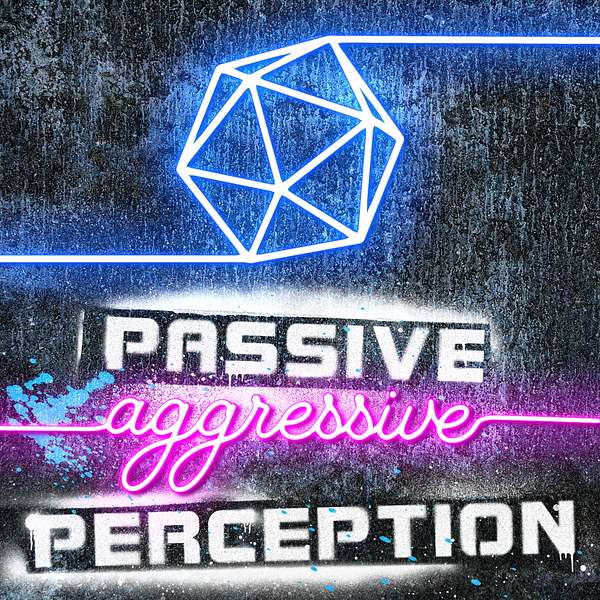
Passive (Aggressive) Perception
🎲System-agnostic tabletop roleplaying game discussions. Level up your TTRPG sessions with topic deep-dives, news, and tips for D&D and so much more. 🌲New EVERGREEN episodes every Wednesday. 🤹♂️Always as goofy as they are sincere, Ivan and Steve are two forever GMs obsessed with making your next TTRPG session the best one yet. 🗣Covering topics including •metagaming •interviews with industry leaders •bringing real life socio-political issues into your campaigns •TTRPG news, and beyond. 🧙♂️Passive (Aggressive) Perception investigates any and all games/systems including D&D, Pathfinder, Savage Worlds, Call of Cthulhu, Star Wars, Vampire the Masquerade, and anything else they can get their hands on. If it can be played it's fair game. 📚The conversation is never limited by any one game, but all of the topics, tips, and core principles easily apply to Dungeons & Dragons or whatever else you happen to be playing at the time. 💻icastspells.com & anywhere you get podcasts.
Passive (Aggressive) Perception
Ep 51 - Lore
•
Ivan Potocnik & Steve Jones
•
Season 1
•
Episode 51
This week we cover the importance of a tabletop roleplaying game's setting lore. We discuss why we think it's sometimes neglected and cover the potential risks of not being wholly acquainted with your in-game world. We touch on topics such as setting uniqueness, campaign scope, bringing real-world assumptions into sessions, the loremaster player archetype, and much more.
Website: https://icastspells.com
Twitter: @passive_podcast
Email: passiveaggropod@protonmail.com
Show Breakdown:
- 0:00: Intro
- 0:59: TTRPG News
- 13:20: @BurnelDan "What is your favorite character you've had in any game?"
- 21:36: Main Topic
- 23:19: Dispelling the misconception that some games don't have lore
- 24:53: What exactly we mean by TTRPG lore
- 25:56: The subtlety of deep lore games
- 28:37: TTRPG lore is what players fall in love with and remember
- 29:55: Lore knowledge helps us play our most genuine characters
- 31:27: Not using the available lore can strip a setting of its uniqueness
- 34:29: The absence of lore can serve as a hook
- 35:18: Emergent lore, while useful sometimes, can be a cop-out for players who don't want to do their research
- 39:47: Gaining a working knowledge of a game's lore informs the scope of the players' actions
- 41:02: Gaining a baseline of lore knowledge shows respect to the game and the GM
- 42:40: Knowing lore prevents us from bringing real-world assumptions into the game
- 44:45 Knowing game lore cuts down on lengthy exposition dumps (employing the loremaster player archetype)
- 49:27: Wanting emergent story has merit, as does targeted learning
- 53:32: Outro
Emergent lore, while useful sometimes, can be a cop-out for players who don't want to do their research
Knowing game lore cuts down on lengthy exposition dumps (employing the loremaster player archetype)